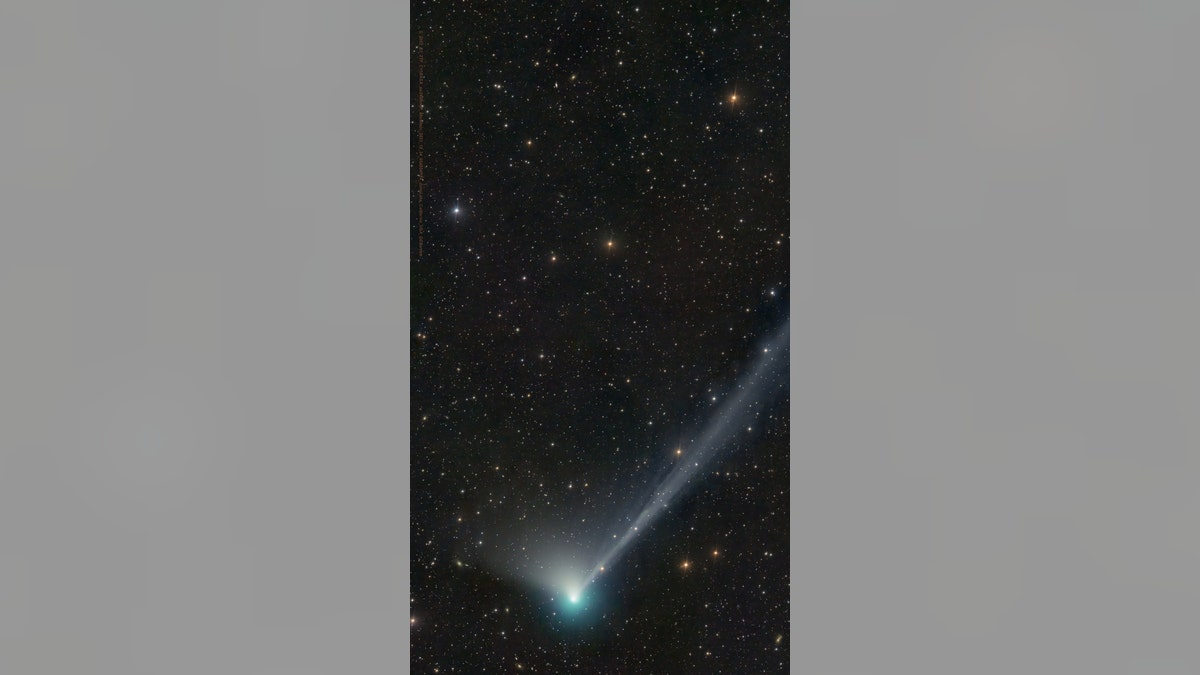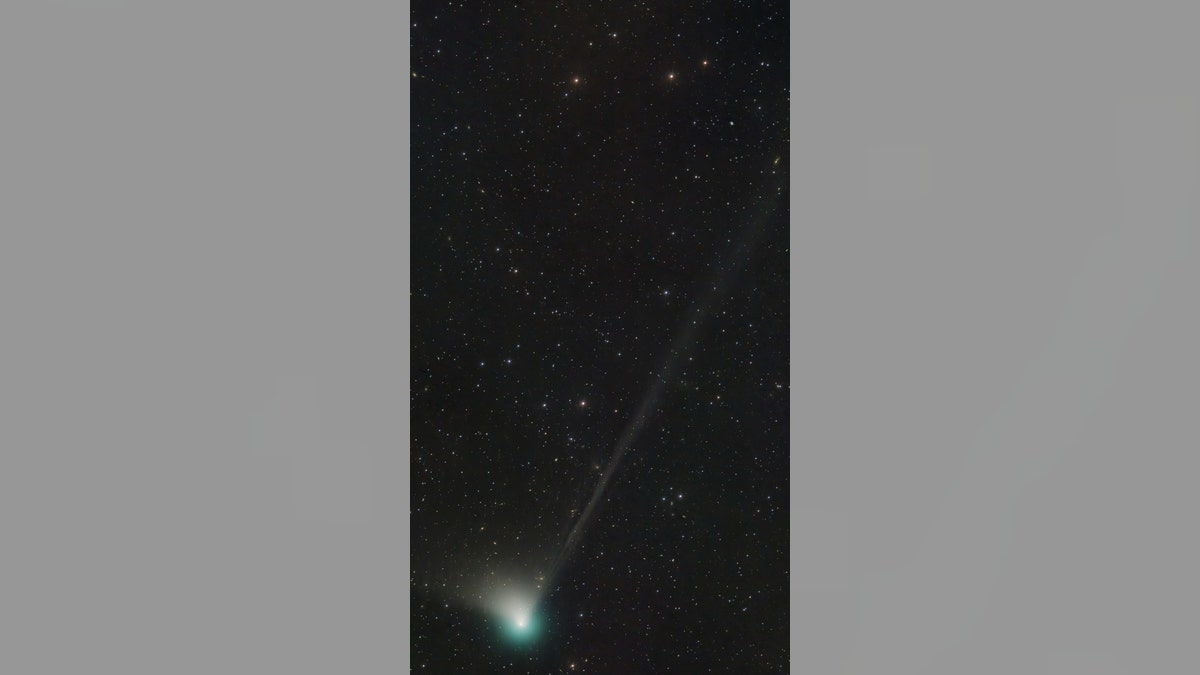NASA's planetary defense team successfully crashes spacecraft into asteroid
Former NASA astronaut Mike Massimino explains NASA's DART mission and why they intentionally crashed a spacecraft into an asteroid
A green comet shooting through the morning skies is scheduled to make its closest approach to Earth at the beginning of next month.
Comet C/2022 E3 (ZTF) was first spotted in March of last year, when it was already inside Jupiter's orbit. It's reportedly making its closest approach in 50,000 years.
NASA has said that it will make its closest approach to our planet on Feb. 2.
If this comet continues its current trend in brightness, it should be easily visible with a small telescope or binoculars.
FIRST NATIVE AMERICAN WOMAN IN SPACE STEPS OUT ON SPACEWALK

Comet C/2022 E3 (ZTF) was discovered by astronomers using the wide-field survey camera at the Zwicky Transient Facility. (Dan Bartlett)
The agency noted that it's "just possible" it could become visible to the unaided eye under dark skies.
MORE THAN 3 BILLION STARS, GALAXIES ARE CAPTURED IN A MASSIVE NEW SURVEY

Exterior view of NASA's Jet Propulsion Laboratory on February 28, 2018, in Pasadena, California. ((Photo by RB/Bauer-Griffin/GC Images via Getty Images))
"If you’re in the Northern Hemisphere, use binoculars or a small telescope to find Comet C/2022 E3 (ZTF), which has been passing through the morning skies all month," NASA's Jet Propulsion Laboratory tweeted Friday.
It will become visible in the Southern Hemisphere in early February.

On a voyage through the inner Solar System, comet C/2022 E3 (ZTF) will be at perigee, its closest to our planet, on Feb. 2. (Dan Bartlett)
CLICK HERE TO GET THE FOX NEWS APP
Skywatchers are advised to check apps for the comet's position.
On Jan. 21, the comet will reportedly be close to the constellation Draco, according to the New York Times.










































